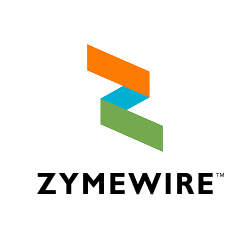Venture firm Apple Tree Partners has invested $55 million in a new biotechnology company developing antiviral treatments capable of working across families of viruses.
The company, called Red Queen Therapeutics, envisions its technology as a foundation for antiviral drugs against infectious pathogens like COVID-19, influenza and respiratory syncytial virus. Already, it has advanced a COVID antiviral through Phase 1 testing, and has secured U.S. government funding for a pan-influenza drug.
Red Queen’s technology is based on research by Harvard Medical School professor Loren Walensky, who co-founded the company alongside Apple Tree Partners. It has designed so-called stapled lipopeptides to block viral fusion, essentially preventing target viruses from entering into cells.
“[Our candidates] can be used pre- or post-exposure as an actual therapeutic,” said Red Queen CEO and ATP Venture Partner Mark Mitchnick. “Where[as] most therapeutics work at some point after the virus has infected a cell, we prevent the virus from actually getting into the host cell.”
Additionally, because viruses’ fusion functions are typically conserved across mutations, Red Queen claims the approach could remain effective across many variants of a target virus, such as the many offshoots of the Omicron coronavirus strain.
So far, that theory has been put to the test in preclinical studies run by Walensky’s lab and a Phase 1 trial of Red Queen’s lead candidate, RQ-01, in people with mildly symptomatic COVID-19.
Administered as a nasal spray, RQ-01 led to a “trend” toward faster clearance of SARS-CoV-2 infection by the fifth day than placebo, with a “placebo-like” side effect profile. The company said the trial, which involved 67 people, was not statistically powered for determining the drug’s efficacy.
Red Queen presented the Phase 1 data at the American Society for Microbiology’s annual meeting in June, while the preclinical results in hamsters were published earlier this year in Nature Communications.
“These [therapies] are not meant to replace vaccines, but they are something that could be ready as a first line against an emergent COVID variant [or] flu variants,” Mitchnick said.
Red Queen said its antiviral treatments could be stored at room temperature for long periods of time, and be adapted for use via inhaler or injection, as well as via a nasal spray.
The Series A funding will help Red Queen advance its pipeline, which includes programs in RSV, influenza and herpes. The company is planning a Phase 2 study of RQ-01 in people with weakened immune systems. While the trial’s criteria are not finalized, Mitchnick said participants could include individuals who have undergone transplant surgery, are on immunosuppressive drugs or have received CAR-T cell therapy.
The money from the U.S. government, via the Biomedical Advanced Research and Development Authority, will support preclinical development of a pan-influenza drug. While no data has been published yet, Mitchnick said Red Queen’s program is intended to work against H5N1, or avian, influenza, which has become a top public health concern among ongoing outbreaks in U.S. livestock.
Preclinical study results from that program are expected to read out next year.













